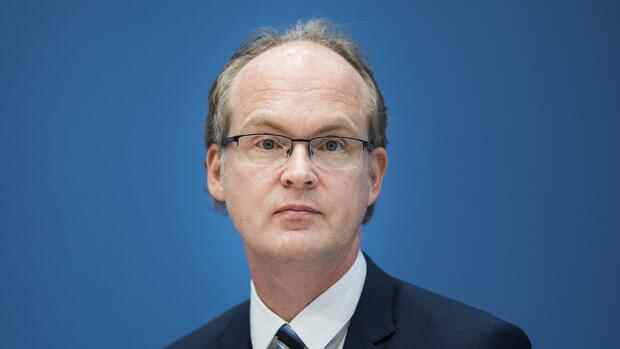Sebastian Dullien is Scientific Director of the Institute for Macroeconomics and Business Cycle Research at the Hans Böckler Foundation.
(Photo: imago images / photothek)
Over the past week there has been a massive shift in the public investment debt financing debate. Two of the leading economists from the conservative-liberal camp, Ifo President Clemens Fuest and former Expert Council member Lars Feld, independently of one another, called in guest contributions to finance public investments amounting to several hundred billion euros through the creation of a reserve in the federal budget for 2022.
DIW President Marcel Fratzscher was co-author of Feld’s guest article. Expert council member Veronika Grimm, who is also attributed a conservative-liberal point of view, cautiously agreed to the suggestions of Feld and Fratzscher on Twitter.
The basic idea: The still existing corona-related exceptional situation of the debt brake will be used to fill a reserve with loans, from which investments and decarbonization will be paid for in the following years. In this way, additional debt for investments is made possible on a one-off basis for a limited sum.
The importance of such advances can hardly be overestimated. So far, Fuest, Feld and Grimm had positioned themselves – albeit with different vehemence – against a credit-financed increase in public investments beyond the normal limits of the debt brake.
Top jobs of the day
Find the best jobs now and
be notified by email.
According to the latest statements, there are now hardly any renowned economists to be found in Germany who completely reject higher new borrowing for investments. From an economic point of view, the proposals by Fuest, Feld and Fratzscher are reasonable.
One-time debt poses no threat to the state
The deficiencies of the German public infrastructure are obvious. High public spending will also be necessary for decarbonization. At the same time, Germany can borrow money on the capital market at minus interest rates.
A one-off, earmarked debt does not pose any threat to Germany’s debt sustainability. Politically, however, the proposed solution is problematic: Legally, it is far from clear whether one can even use credit authorizations from the corona crisis for such a reserve.
Even if the construction ultimately holds, it is more likely to fuel disenchantment with politics if the Corona exception is used to take out loans for infrastructure and decarbonization. If the overwhelming majority of economists, far into the conservative-liberal camp, actually agree that one-off, albeit limited, credit financing for future expenditure is economically correct, why not do it in a legally and politically straightforward manner and write a one-off exception clause Basic law that enables borrowing of 500 billion euros for precisely defined investments over the next ten years?
In fact, such a constitutional amendment could even be in the self-interest of the Union, whose votes are needed: It is increasingly becoming apparent that a traffic light government will take the economically correct route of financing investments through loans.
One-off rule: advantages for the Union
The debt brake leaves various leeway for this, for example through investment companies. With a clear one-off regulation in the Basic Law, the Union could on the one hand demand control rights over investments and on the other hand, together with the traffic light parties, make a name for itself as an advocate of transparency and straightforwardness in public finances.
In contrast to the proposed reserve, an amendment to the Basic Law does not create a precedent for new simple legal constructions if future governments lack money for one or the other favorite project. Anyone who wants to have a clean debt brake in the long term should therefore advocate a clean exception rule in the short term.
More: SPD-Linke wants to finance traffic light projects with a public investment company
